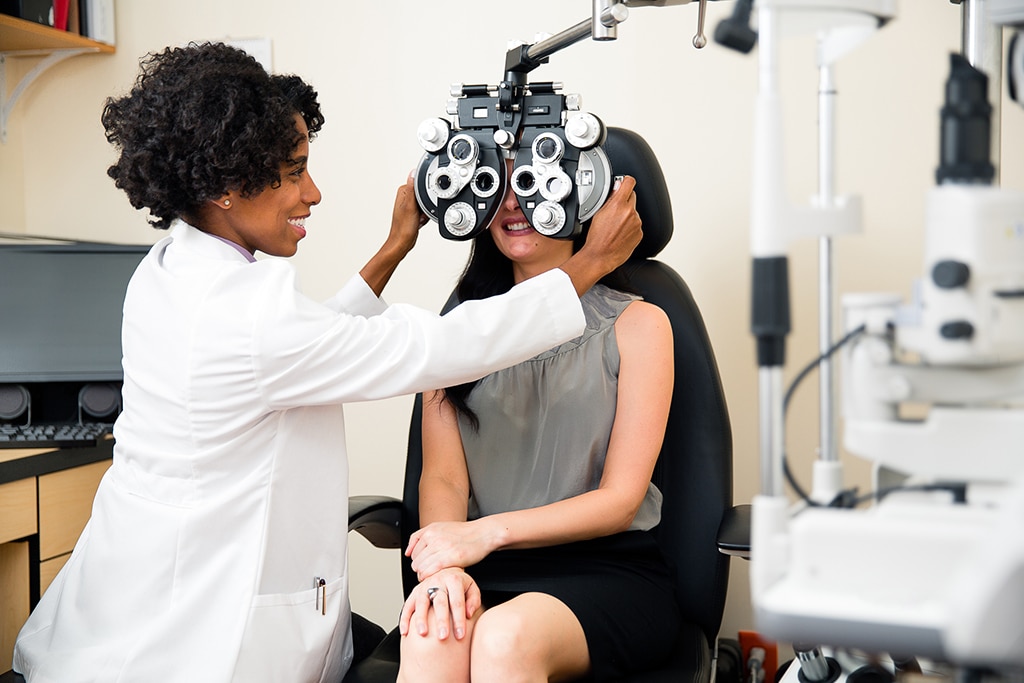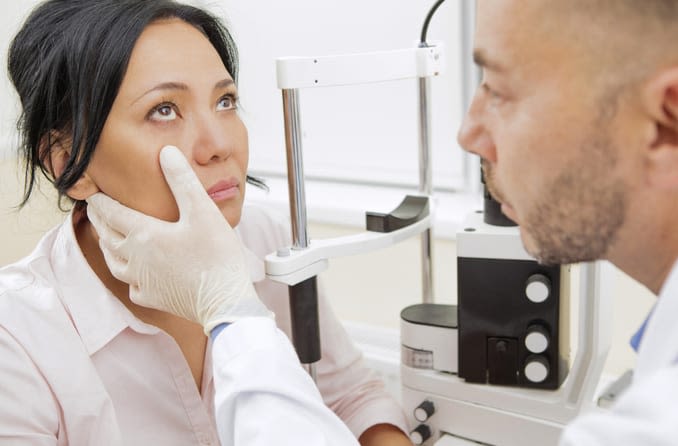Why Picking an Eye Doctor Optometrist is Vital for Your Eyes
Why Picking an Eye Doctor Optometrist is Vital for Your Eyes
Blog Article
Recognizing the Comprehensive Duty of an Optometrist in Modern Eye Treatment
In the progressing landscape of healthcare, the extent of an optometrist's role has considerably broadened, prolonging well beyond the confines of conventional vision correction. With improvements in modern technology and an enhancing focus on precautionary treatment, optometrists are indispensable in detecting and handling chronic eye problems, while also taking part in early condition discovery. Their expertise in innovative analysis techniques such as optical coherence tomography is very useful. However just how do these duties converge with their function in promoting total eye health and wellness, and what does this mean for person results in a collaborative medical care environment?
Expanded Extent of Method
In current years, the role of optometrists has actually advanced dramatically, with lots of experts currently embracing a broadened extent of method that extends beyond typical eye evaluations. Their responsibilities now include a wide array of solutions, consisting of recommending medicines for ocular problems, taking care of chronic eye conditions, and doing small surgical treatments.
Additionally, eye doctors are currently more associated with joint treatment, functioning carefully with eye doctors, medical care medical professionals, and other healthcare specialists to make sure holistic patient treatment. This interprofessional cooperation is vital in managing complicated instances that call for a multidisciplinary approach. Furthermore, eye doctors are playing an essential role in public health initiatives, such as vision testings and eye health education, targeted at enhancing community health and wellness outcomes.
The broadened range of method for eye doctors not only enhances their capability to offer detailed treatment yet likewise resolves the growing need for accessible and efficient eye treatment services, adding to overall medical care improvements.
Early Condition Detection
Very early discovery of eye conditions is increasingly becoming a centerpiece in the expanded role of optometrists. As main eye treatment carriers, optometrists are uniquely placed to identify very early indicators of eye conditions such as glaucoma, macular deterioration, diabetic retinopathy, and cataracts. This critical duty is vital, as early diagnosis can considerably improve the monitoring and diagnosis of these conditions, possibly avoiding vision loss and improving individual end results.
Eye doctors use comprehensive eye assessments to find refined modifications in vision and eye health. The ability to acknowledge early indicators of systemic wellness issues, such as hypertension and diabetes, with ocular indicators additionally emphasizes the significance of routine eye examinations.
Furthermore, eye doctors play a vital duty in client education, highlighting the importance of regular eye examinations as part of general health care. By cultivating a positive strategy to eye care, eye doctors add considerably to public wellness, ensuring illness are caught and taken care of effectively before they can proceed.
Advanced Diagnostic Techniques
Advanced diagnostic strategies have transformed the technique of optometry, enabling professionals to spot and keep track of eye conditions with unmatched accuracy. Technologies such as optical comprehensibility tomography (OCT) provide high-resolution, cross-sectional images of the retina, assisting in very early detection of conditions like glaucoma and macular degeneration.
An additional important advancement is digital retinal imaging, which records comprehensive sights of the retina making use of high-def video cameras. This modern technology is crucial in identifying adjustments in retinal framework over time, consequently aiding in the administration of problems like diabetic retinopathy. Aesthetic field testing, enhanced by computer-aided systems, enables precise mapping of a person's line of vision, vital in diagnosing and tracking glaucoma progression.
Corneal topography, another notable analysis tool, generates in-depth maps of the cornea's surface. This is especially helpful in suitable get try this out in touch with lenses and intending refractive surgical procedure. These sophisticated diagnostic methods jointly enable eye doctors to offer aggressive, targeted care, guaranteeing much better person outcomes and reinforcing their essential duty in eye health and wellness monitoring.
Handling Persistent Eye Problems
Managing chronic eye problems is a foundation of optometric treatment that needs a detailed understanding of different eye diseases and their long-term effects. Optometrists play a pivotal role in surveillance, diagnosing, and handling conditions such as glaucoma, diabetic retinopathy, and age-related macular deterioration. These conditions, if left untreated, can bring about considerable visual problems or loss of sight, highlighting the critical value of recurring treatment and management.
Optometrists utilize a series of diagnostic tools, consisting of optical comprehensibility tomography (OCT), aesthetic area testing, and fundus photography, to examine the progression of these chronic conditions. By closely checking changes in ocular health, eye doctors can change treatment strategies to alleviate condition progression. This might entail suggesting medicines, suggesting way of life modifications, or collaborating with ophthalmologists for surgical treatments when needed.

Function in Preventive Care
Precautionary care is a fundamental element of optometry that concentrates on preserving eye health and protecting against the beginning More hints of ocular illness. Optometrists play a critical function in very early discovery and prevention, employing normal eye assessments to determine threat elements and refined modifications in eye health. Eye Doctor. These examinations are not simply regarding vision correction yet include an extensive analysis of eye features and structures, making it possible for the identification of problems such as glaucoma, cataracts, and macular degeneration at a beginning
In enhancement to diagnostics, optometrists educate people on way of life selections that promote eye health and wellness, such as appropriate nutrition, UV defense, and the importance of routine eye examinations. They recommend on the appropriate use of digital tools to avoid digital eye pressure, an expanding issue in the digital age. Optometrists likewise give assistance on protective eyeglasses for recreational and occupational tasks, alleviating the danger of injury.
Preventive eye care encompasses systemic wellness problems that materialize in the eyes, such as diabetes and high blood pressure. By collaborating with other medical care professionals, eye doctors contribute to all natural patient treatment, emphasizing the interconnectedness of eye and systemic wellness. This positive strategy is crucial in securing aesthetic acuity and overall well-being.
Final Thought
Optometrists now occupy a critical function in contemporary eye care, defined by an increased extent that consists of detecting and taking care of persistent eye problems, recommending medicines, and doing small surgeries (Opticore Optometry). Their proficiency in early disease discovery is boosted by innovative analysis methods such as optical coherence tomography and electronic retinal imaging. By stressing precautionary care and client education, eye doctors add substantially to general eye health, collaborating with other health care specialists to guarantee comprehensive and efficient person end my response results

In addition to diagnostics, optometrists enlighten clients on way of living choices that advertise eye wellness, such as proper nutrition, UV security, and the value of routine eye examinations.Preventive eye treatment prolongs to systemic health problems that manifest in the eyes, such as diabetes and hypertension.Optometrists currently occupy an essential role in modern eye treatment, identified by a broadened scope that consists of identifying and taking care of chronic eye problems, prescribing medicines, and executing minor medical procedures.
Report this page